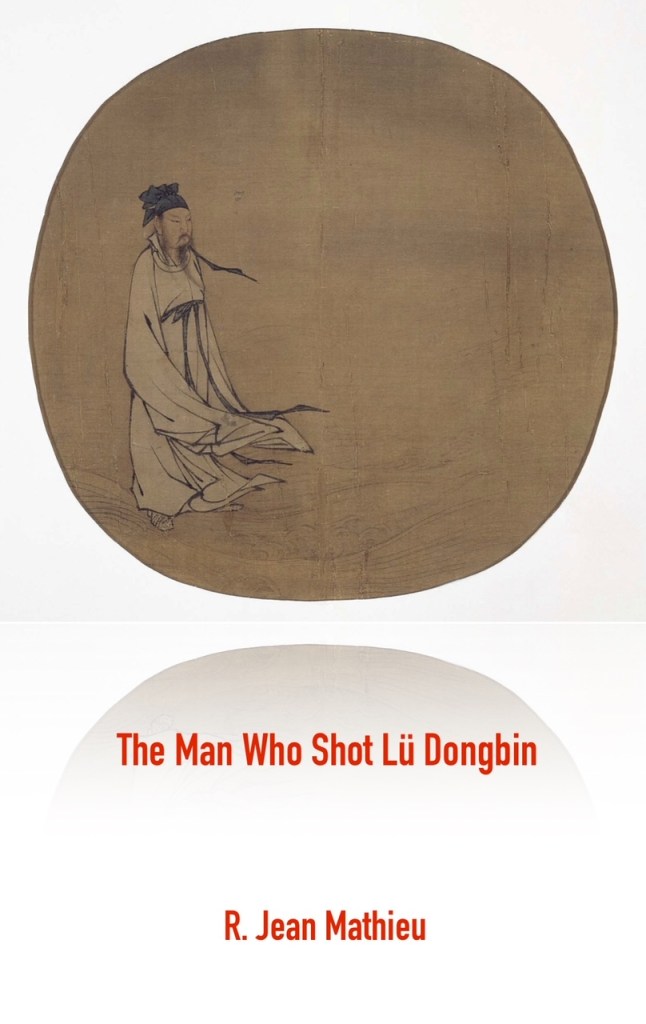
When I saw that one of the eligible pieces for this year’s Nebula Awards was a short story, originally in French, I had to check it out. And double when I found it was published in Solaris, and even won the Prix Solaris when it was first published in 2022. It found print in English this last year in Year’s Best Canadian Science Fiction.
Best Canadian science fiction? In French? Sacré ouais!
And I am so glad I did.
This story is so wonderfully, enchantingly weird.
Geneviève Blouin (Fr.) weaves a weird little story a bit like so: The shellwomen are a kind of molluscoid mermaid – normal women (as near as I can tell) from the waist up, built like snails from the waist down. They are proud of their expansive shells, where their men and children shelter, of their warm, fleshy folds, and the milk of their breasts. Their community has a kind of fragile traditional communality – the guides of the clans are obsessed with whether they’re group-oriented enough, baskets are filled by friends and neighbors if there isn’t quite enough, they even regulate their population by trading men, shellwomen, or the poor unfortunate “slugs” (grown women with legs) with neighboring tribes. But things are afoot, and the shellwomen may have a very different future before them than the one they’ve known, caring for the children, sunning on the beach, and sheltering their clans.
Despite the title, the focus isn’t really on the shellwomen themselves, but on one of their men (or harvestmen, as they are called), Manuto. Manuto is, I don’t have another word for it, hapless – he’s a terrible leader (or “guide”) of his clan (always picking the worst assignments, because he’s too honest to maneuver for the good ones) and hidebound in his ways. He loves his shellwoman, Hina, and his children – why, his eldest daughter’s thighs are already becoming stiff and enlarged, she’ll soon form a cocoon as her foot forms! So it’s with a great deal of shock that he hears the chief advocating the rights of “harvestwomen” over the shellwomen.
Honestly, my only complaint is that the extended focus on Manuto as the main character kind of gives the shellwomen, and their secret lives, the shrift. The ending feels abrupt, and although, yes, logically all the pieces were there, it still feels like it came out of left field. This is a minor quibble, though – Geneviève Blouin is no Neal Stephenson, and the ending is still, mostly, satisfying.
The theme that emerges, on rereading the story, is this is a story about power – the power between the shellwomen and the harvestmen, the powerlessness of the “harvestwomen” (whom Manuto thinks of as “slugs,” an older and harsher word), the power of chiefs over clan guides, even the power of politicking and horse-trading, of charisma. The chief exerts charismatic power over Manuto to compromise him, and when this doesn’t work, effortlessly replaces him as guide with his brother. It only occurred to me after that the brother’s desire for a second shellwoman (because of course a new man like him thinks of collecting ‘em all, unlike his old-fashioned brother) is not long for this world. The shellwomen appear to have power over the harvestmen – after all, the harvestmen work to collect greens for their herbivorous mates, and, as the chief puts it, “all they do is watch the children and laze around all day in the sun.” – but the other side of that coin is the power to deny them their food. And the shellwomen have their own power, a real power, to counter that threat the harvestmen can hold over them. Plans within plans within plans, and all sewn up in under 8,000 words.
It feels like a strange new story that still tastes of all those Silver Age Best Ofs and paperback anthologies that I grew up. I could see this story in Dangerous Visions or something edited by Lin Carter. It gives me some hope for my own more grounded, earthy, and earnest science fiction, the stuff like “Glâcehouse,” “No More Final Frontiers,” and “The Voluntolds of America.” And yet, I could not have written anything so wonderfully, enchantingly strange as all this. Like “Rabbit Test,” this was a story that could only be written, or translated, by women.
For the folks at home, pick up Year’s Best Canadian Science Fiction, Vol. 1. If Margaret Sankey’s translation of “The Secret Lives of Shellwomen” is any indication, it really is the year’s best. And for any voting SFWA members reading this – nominate “Secret Lives of a Shellwoman.”
(right after “The Voluntolds of America,” of course)



























Recent Comments